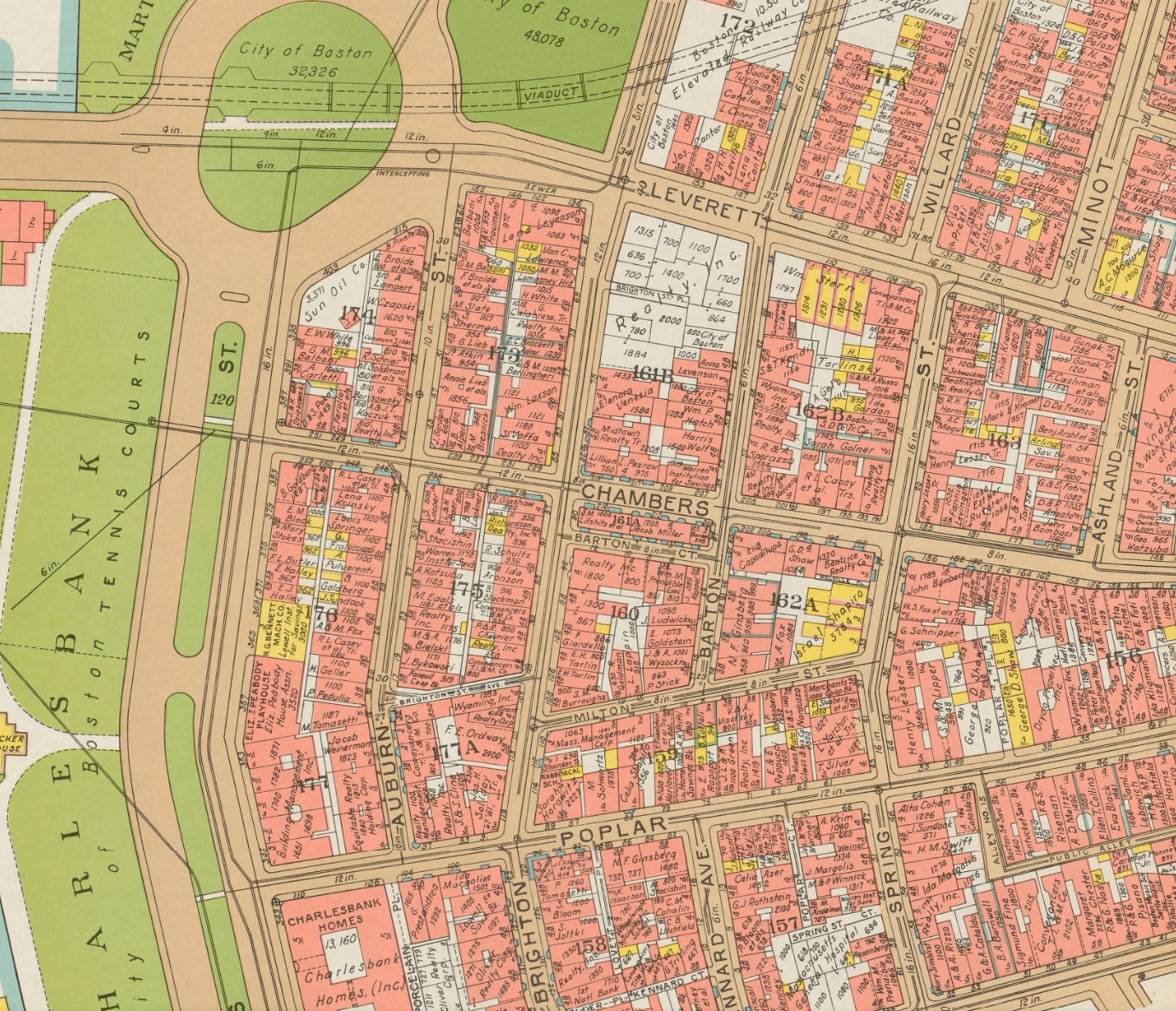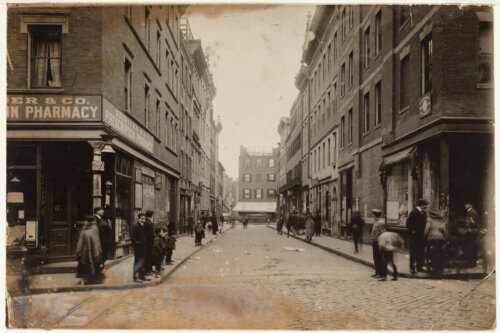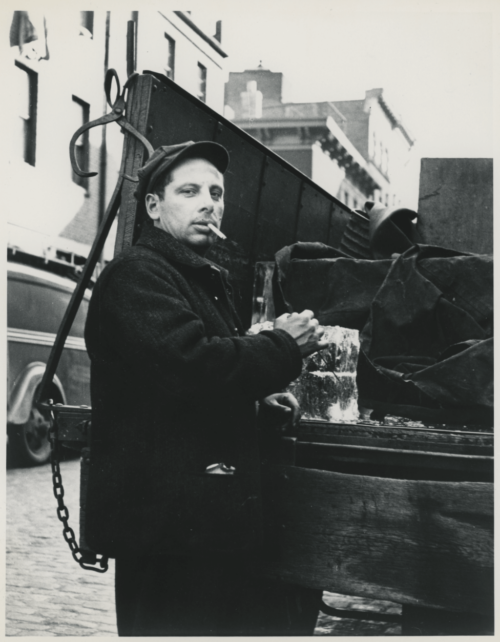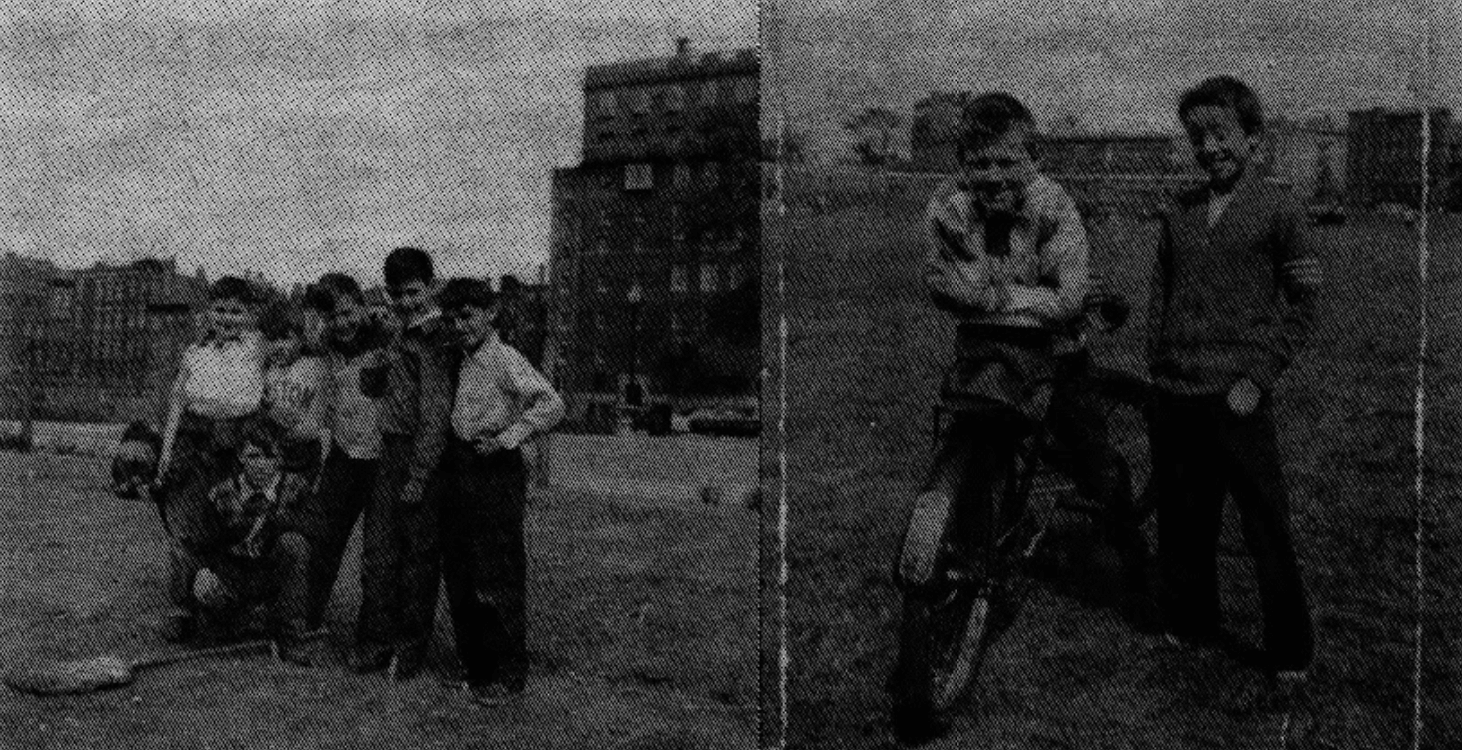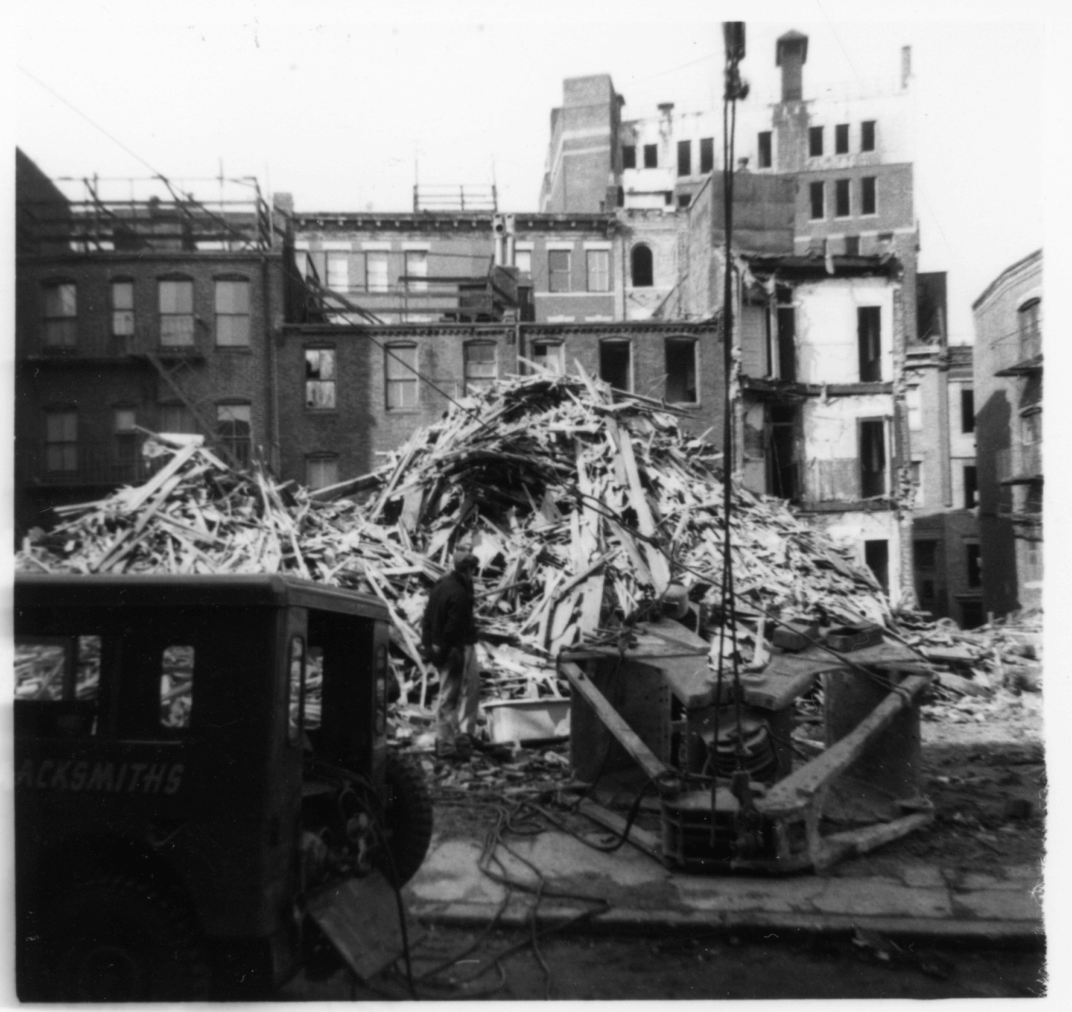My Grandfather: Memories of Daily Life in the West End
Below is a memory letter from the Museum’s archives, originally submitted by Joseph LoPiccolo to the West Ender Newsletter in 1988. In it, we follow Joseph and his grandfather (an Italian immigrant) through their daily lives in Boston’s West End, prior to its demolition.
Grandpa migrated to the United States from Sicily in the early 1900s. Like many Italian immigrants, he settled in the North End of Boston with Grandma and their five children, Joe, Ann, Florence, Margaret, and Rose. Several years later, Grandpa and family moved to the West End of Boston at 82 Brighton Street. Grandpa was a tall, strong, solid man with a full head of white hair, whose trademark was his grey scally cap. Although he had lived in the U.S. many years, he never mastered the English language. He spoke broken English (half Italian and half English). A cement mason by trade, he was always so proud of the masonry work he completed on the Curley Mansion in Jamaica Plain. Grandpa was a kind, friendly man. He would sit in his favorite chair in front of his house with his cat, Martha, by his side from morning till night, greeting friends, neighbors, and strangers with a handshake and a smile. He was known as the “Mayor” of Brighton Street.
Every September, a hundred cases of grapes would be delivered to his house. I would help him carry them into the cellar, set up the barrels, and the winemaking would begin. Grandpa would make gallons and gallons of wine; the aroma of it would filter throughout the building for many months. Every fall, a truckload of coal would be delivered – it was used to keep the pot belly stove in the cellar going all winter. That was the only method used in those days to keep the water pipes from freezing. No such thing as central heat.
Grandpa really enjoyed summertime in the West End. He would stroll up Brighton Street to the corner of Leverett Street to the Field, where a group of his friends would be gathered. There they would enjoy playing Bocce Ball or Motta. A card game would be going in another corner, or they would just sit and enjoy the sun and reminisce about their boyhood days in Italy. On rainy days, Grandpa would stroll up Leverett Street to Charlie Papa’s Cafe for a cold beer, wander over to Gagi’s pool room to watch the young guys play pool, and sit and chat for hours with Sonny LePresti’s grandfather. Grandpa would often go to the Italian American Club at the corner of Spring and Chambers Streets. He would stop by Barney Chef’s for a glass of wine and then to Angelo’s Barber Shop on Chambers Street near Barton Street. Another favorite place was Baldi’s Barber Shop on Leverett Street.
I remember Grandpa sending me to Jeff’s Variety at Brighton and Chambers Street to buy his Stogie Cigars or to Margarita’s Italian Grocery Store on Spring Street to buy fresh macaroni, which was stored in wooden bins. Grandpa would occasionally visit Rosenberg’s Drug Store for a vanilla ice cream cone or a vanilla coke. Every morning, he would be first in line at Nicolosi’s Bakery to buy several loads of delicious hot Scala bread. Every day, he would make a run to Spring Street where Jackie the Bookie took his bets in the hallway.
Fresh fruit and vegetables were plentiful in the West End. Grandpa would buy watermelon from the Watermelon Man, who would travel the streets with a horse and wagon and yell “Watermello.” Next the pushcarts would come peddling fresh fruit and vegetables, and on Fridays came the Crab Man with fresh crab and fish. Yes, that was Fish Consolo. I remember making a cart from an old fruit crate with two by fours as handles and an old baby carriage for wheels and going to the Freight Yards at North Station to get ice for Grandpa’s ice box. Boy did I hate emptying the pan under the ice box every day. In the winter time, Vinnie Maschashia would deliver ice and give gallon cans of oil for the kitchen stove. Grandpa would put a card in the front window to note how many cans of oil he wanted and also note the size of the piece of ice he wanted: 25 cents, 35 cents, or 50 cents. Grandpa would put orange peels on the hot kitchen stove; the aroma would fill the house. On a cold winter night he would put two bricks in the oven. After they were red hot, he would wrap them in heavy cloth and off to bed he went. They kept him warm all night.
Grandma died in 1946 and like many West Enders her wake was held in our living room. On our front door we hung a light and a basket of flowers announcing Grandma’s death. The stairway in our building was so narrow, Grandma’s casket had to be brought from the house with a rope and tackle.
On happier occasions, I remember Aunt Margo and Uncle Argie’s wedding reception was held in our living room. The bath tub was filled with ice, beer, tonic, and wine. The music played and we partied all night. What a great time we had.
Grandpa loved living in the West End. Everything he wanted in his later years in life was right there for him to enjoy. But then it happened. In 1955, the out of state social planners, greedy politicians, and developers came. They decided the West End was a slum area; they were going to destroy the buildings, the neighborhood. Everybody had to move. Grandpa was devastated. At his age he could not understand what was happening – why his house, his friends, his neighborhood, his life were being taken from him. Is this America! Is this the United States, the land of the free – what’s happening?
It was such a sad day when we moved Grandpa to the projects in East Boston. Soon afterward his health began to fail. He could not get used to his new surroundings. He was lost, depressed, shattered. Then it was off to the Don Orione Nursing Home. Grandpa would just sit and cry all day. He missed his home, the West End. He had this empty feeling he would never recover, and shortly thereafter, he died. He died from a broken heart.
The above story is a true story. It is dedicated to Grandpa and the hundreds of West Enders who, like Grandpa, died of a broken heart or were confined to Mental Institutions. Whose lives were shattered by the destruction of the West end.
Article by Joseph LoPiccolo, edited by Grace Clipson.
Source: West Ender Newsletter, 1988 (The West End Museum Archives).


